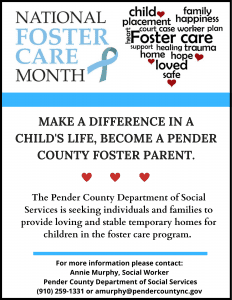Possible relief for small businesses
Today, the Golden LEAF Board of Directors took action in response to House Bill 1043. The bill includes $125 million to provide grants to entities for the purpose of making loans to assist small businesses affected by the economic impact of COVID-19.
The Board modified the terms of the existing NC COVID-19 Rapid Recovery Loan Program to align with the provisions of the bill. Effective today, loans made from the program to small businesses will include a limit on the number of employees per business, a minimum interest rate for the first six months of the loan term, and an increased time for repayment.
The NC COVID-19 Rapid Recovery Loan Program was launched on March 24 with an initial allocation of $15 million provided by Golden LEAF. Applications were quickly submitted well in excess of the available funding. Golden LEAF worked with the Office of Governor Roy Cooper and leadership of the North Carolina General Assembly to appropriate the additional funds to support this program and address identified demand. With this additional funding in place, applications will continue to be processed on a first-come, first-served basis.
Golden LEAF Board Chair Bo Biggs said, “The Golden LEAF Foundation Board of Directors thanks the Governor and General Assembly for their leadership. We are honored that Golden LEAF can serve as a trusted conduit for much needed resources to assist small businesses during this crisis.”
“The significant volume of applications in the pipeline is indicative of the severity of the statewide economic impact COVID-19 has had on North Carolina’s small businesses,” said Golden LEAF Foundation President Scott T. Hamilton. “Today’s action will enable the program to continue to provide much needed support to the State’s small businesses, especially those most at risk for permanent closure.”
“Today, North Carolina’s small business owners are facing an unprecedented economic challenge–and it will take a sustained statewide effort to support them through this crisis,” said NC Rural Center President Patrick Woodie, whose organization manages the program in partnership with Golden LEAF. “The NC COVID-19 Rapid Recovery program would not have been possible without the quick response and ‘can-do’ attitude of our partners, Golden LEAF’s ongoing support, and the confidence of the North Carolina General Assembly.”
The NC COVID-19 Rapid Recovery Loan Program offers low interest loans of up to $50,000 with no payments for six month to businesses affected by COVID-19. If not repaid in six months, the loan will automatically convert to a term loan.
The Rural Center acts as a program administrator, managing the flow of loan applications to lending partners for underwriting and servicing. Lending partners include Business Expansion Funding Corporation (BEFCOR), Carolina Small Business Development Fund, Mountain BizWorks, Natural Capital Investment Fund, Piedmont Business Capital, Sequoyah Fund, and Thread Capital.
Small-business owners affected by Coronavirus (COVID-19) can learn more about the NC COVID-19 Rapid Recovery Loan Program and apply for a loan at https://ncrapidrecovery.org/ or to speak with someone about this program or other resources available to small businesses contact Business Link North Carolina (BLNC) at 800.228.8443.


